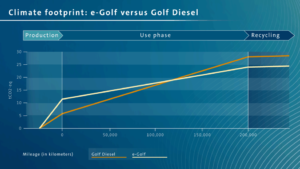If EVs were the solution Government would not allow you to use them
Canadian UnEmployment Minister Seamus O’Regan and Natural Resources Minister Jonathan Wilkinson have introduced a bill forcing an unjust transition on Canadians who refuse to vote for them. They claim to have no choice because the markets demand that conservative voters be unemployed.
“Global financial markets are driving many of these changes, with investors looking to steer away from investments that are not consistent with the low carbon future,” he said.
In keeping with my annoying habit of pointing out the obvious I feel compelled to remind everyone that if this was market driven there would be no need for government intervention. But, we do have massive intervention designed to eliminate Canada’s petroleum industry. Because of course Canadian oil is destroying the planet which is a little surprising when you consider that Ukrainian oil is not. I am not a soil scientist but I can only surmise that there is something in Canadian soil, absent in Ukrainian soil that negates the massive benefits of fossil fuels.
To save the planet, millions of Canadians must give up the oil industry, accept a lower standard of living, and find a job building solar panels, electric cars and windmills. That last part is a bit tricky since all that equipment is made in China. I guess the just transition must include a Chinese work permit.
The “solutions” to the non-existent climate emergency are as stupid as Seamus O’Regan and Jonathan Wilkinson. To start EVs don’t even reduce CO2 they just shift the CO2 production from vehicle operation to vehicle manufacturing.

According to this plot an EV must be driven more than 120,000 Km before it produces less CO2 than the same car with a diesel engine. For the average person that is 6 years of driving. After 10 years of driving the EV prevents about 3 Tonnes (3.3 tons) of CO2 which sounds good but this plot leaves out a very important point. After 10 years the EV is no longer drivable but the diesel car is. EV batteries won’t last more than 10 years and the battery is the most expensive, carbon intensive, part of the car.
10 years for EV batteries is actually quite a stretch. Some owners have reported batteries failing within 3 years and constant use of fast charges could lower that to less than 1 year. One aviation company has dropped development of electric planes because they are uneconomic without quick turnarounds with fast chargers. Constant fast charging shortened the battery life to weeks.
The truth is everyone in aviation wants fast-charging planes so the air crew and the capital assets aren’t sitting around for hours paying airport-world prices while they earn nothing. But batteries have a shorter lifespan if they are pumped hard, fast and charged completely full. Sadly slow charging and underchanging are not a solution either. Even if we treat these babies gently with long slow feeds, they would only store less than “170 watt-hours per kilogram”. As the Telegraph authors point out, jet fuel has an energy density of 12,000 watt-hours per kilogram, which is seventy times as much.
Government likes EVs not because they are a solution to climate change. EVs are popular with government because EVs are expensive and most people cannot afford them.
Looking at the consequences of high auto prices on Canadians, the government’s regressive policies are excessively impacting those who can least afford it. Not only do they make many Canadians worse off, the policies do not reduce greenhouse gas emissions in a reasonably cost-efficient manner.
Making cars unaffordable and curtailing movement is the point of the whole exercise. The government does not want you to drive an electric car they simply don’t want you to drive at all and they are very open about that.
Government is using the imaginary climate emergency to do more than just take away your car. They are using it to take away your standard of living. Windmills and solar panels are now the only acceptable forms of power generation. Both are horribly unreliable. Windmills don’t produce any energy when the wind does not blow and solar panels don’t even always produce energy when the sun is shining.
Britain has started burning coal to generate electricity for the first time in a month and a half, after the heatwave made solar panels too hot to work efficiently.
Solar panels are tested at a benchmark of 25C. For every degree rise in temperature above this level, the efficiency is reduced by 0.5 percentage points.
The temperature level refers to the solar cell temperature, rather than the air temperature. In direct sunlight, the cells can easily reach 60 or 70 degrees.
The combination of EVs and unstable power grids is a problem not a solution. That is the point. Even if climate change was a real crisis the government would do nothing to solve it. A crisis, once solved, is no longer useful. Take COVID for instance. The crisis we were told was not the virus but the lack of hospital space yet after 3 years no government increased hospital space. They had no intention of solving the problem as long as they could exploit the problem.
Government kept the COVID crisis alive for as long as they could with fraudulent PCR data. Similarly the climate crisis is fueled by fraudulent temperature data.
That’s because more than 90% of the data is “corrupted.” And the reason for that is the reality that the vast majority of thermometers that NOAA relies on are improperly installed and maintained, leading to the recording of artificially higher temperatures.
COVID was not an emergency and even if it was government intentionally did nothing to alleviate the problem. Climate change is not a problem and even if it was solar panels, windmills, and EVs would not help. If EVs really were a solution, government would ban them as quickly as they banned Ivermectin.


